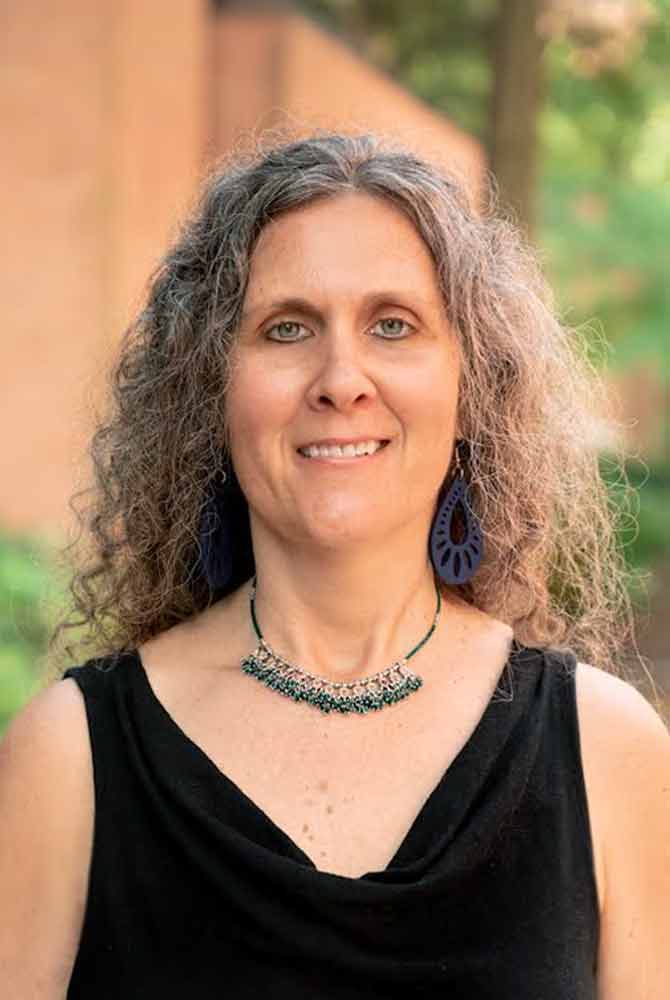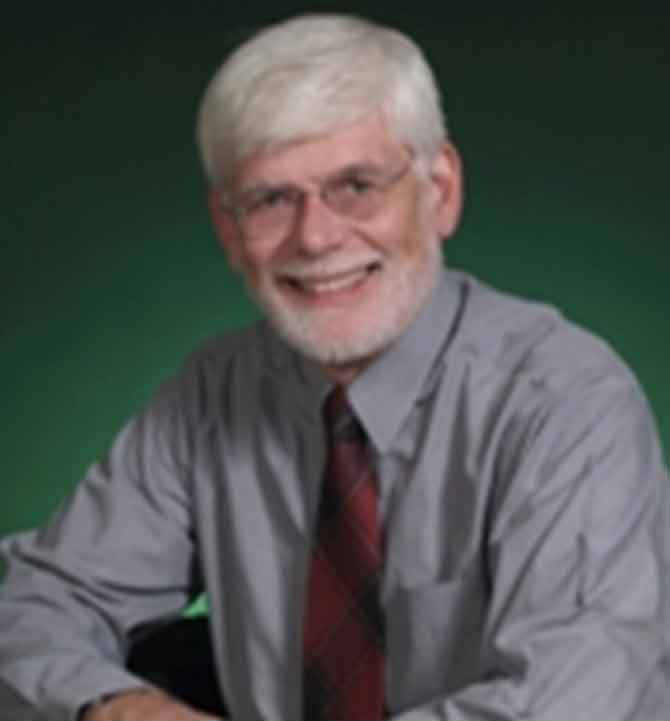Dr. Charles LaBerge and Professor Elaine MacDougall

Professor MacDougall is known for supporting students to learn to think more deeply and learn to question, which are important skills that impact the quality of a student’s education and their ability to be successful in all aspects of their life. It is clear her approach to learning theory and integrating that with experiential learning has done much to expand her students’ thinking about how they can contribute to their own growth, while also contributing to the world around them. The opportunities she provides assists students in developing their voices as she allows her voice to grow along with them. This is clearly demonstrated in her work within her classes and with the McNair Scholars Program. Her participation in the Dawg Days: Summer Bridge program is just one more example of how she looks for opportunities to meet students where they are and to provide learning and support as they navigate the transition to college.
Perhaps she says it best. “In my role as instructor in the English department, I am constantly growing and learning from colleagues and students… I have learned more about linguistic justice and anti-racist writing practices from both reading prominent scholars in the field and taking courses in my doctoral program. Critical and student-centered pedagogy is a recurring theme I encounter in my research and try to carry out in my praxis. An important aspect of my courses is experiential learning, which manifests through service-learning opportunities for students in which students engage with various schools and organizations in the Baltimore area. As a first year Instructor, the Dog Days: Jump Start program, a summer bridge program offered by Academic Engagement and Transitions Program, provides me with the opportunity to incorporate resources and assignments that bring students closer to feeling like they belong here. I’m excited to continue learning and growing with students in my classes, as well as with students experiencing the writing center for the first time.”

Dr. LaBerge has an established reputation as a teacher who is passionate about his students learning and owning engineering principles, but he also provides students with the experience of integrating engineering principles into their daily lives. His teaching philosophy is built on “LaBerge’s Laws of Engineering.” He notes…” My overall goal is to take talented, inquisitive young people and get them to think like engineers.” His ability to engage students in exploring how integral critical thinking skills and techniques are in addressing many of life’s problems and questions is illustrated by these principles. Below are two examples of “his laws.”
- “Engineers must deal with ambiguity. The greatest struggle for first year engineering students at the university level is that practical engineering problems are rarely well-defined. Students are uncomfortable with an assignment that has multiple unknowns or may not be well-stated. To prepare them for the environment they will live in as engineers, I need to repeatedly challenge them with these types of problems, while supporting them in their insecurity that they don’t “know what to do.” Repeated doses of this medicine in a supportive environment helps them develop the skills and comfort necessary to approach the ill-defined and ill-posed problems they will encounter after they leave UMBC.
- Every engineering decision has a cost. By forcing students to make design decisions, we can also force them to consider, and then reckon with, the costs associated with those decisions. This is actually a lesson in mature thinking as much as engineering thinking, but it’s one that students don’t bring with them to UMBC. Don’t do your homework? There’s a cost to that! Sleep in on exam day? There’s a cost to that! Do a slapdash job on a project? There’s a cost to that, too! In the act of being supportive, we, as instructors, also need to let students experience the costs of their decisions. If we don’t, we send ill-prepared graduates into the “real world.”
His students understand that he is always thinking about how he can ensure they are prepared for what comes next, whether that relates to their academics, their work, and in life.
As we recognize our 2022-2023 awardees, Professor Elaine MacDougall and Dr. Chuck LaBerge, it is of note that these two recipients have engaged with our Introduction to an Honors University Seminar, our First-Year Seminar Program, and our Summer Bridge program, and that the breadth of their responsibilities and contributions to UMBC exemplifies how students benefit, on every level, by being connected to extraordinary teaching faculty.
Congratulations to our 2022-2023 recipients.
3/31/2023